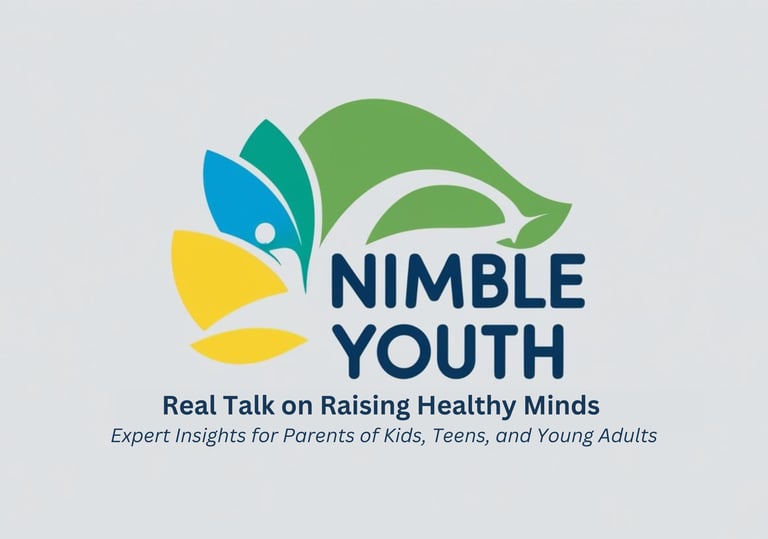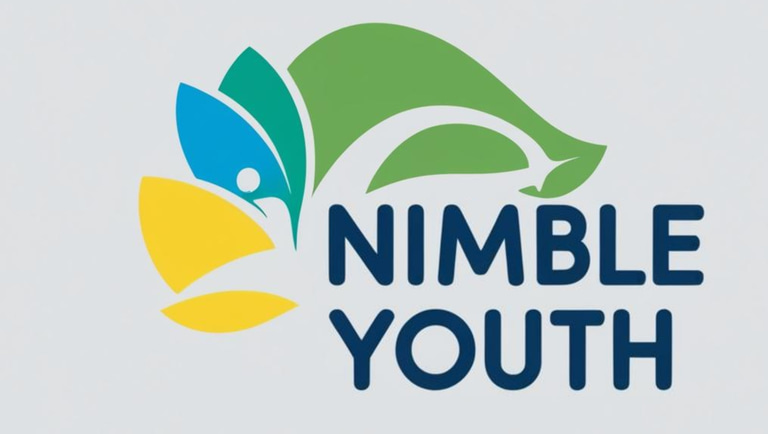Episode Fifteen: Intrusive Thoughts, Compulsive Actions: Understanding Pediatric OCD
We explore the early signs of OCD, common misconceptions, and the deeply disruptive impact OCD can have on school performance, social life, sleep, and family dynamics. Dr. Hoyle also walks through the screening tools clinicians use and outlines a range of treatment strategies—including cognitive behavioral therapy (CBT), exposure and response prevention (ERP), SSRIs, and emerging therapies like digital platforms and transcranial magnetic stimulation (TMS).
M. Butterman
7/26/20251 min read


🎧 Episode 15 — Intrusive Thoughts, Compulsive Actions: Understanding Pediatric OCD
Host: Matt Butterman
Guest: Dr. Gretchen Hoyle, MD
Duration: ~35 minutes
Overview:
In this episode of Nimble Youth, host Matt Butterman is joined by pediatrician Dr. Gretchen Hoyle for an in-depth look at Pediatric Obsessive-Compulsive Disorder (OCD)—a condition that’s often misunderstood and underdiagnosed in children and adolescents.
Together, they explore the early signs of OCD, common misconceptions, and the deeply disruptive impact OCD can have on school performance, social life, sleep, and family dynamics. Dr. Hoyle also walks through the screening tools clinicians use and outlines a range of treatment strategies—including cognitive behavioral therapy (CBT), exposure and response prevention (ERP), SSRIs, and emerging therapies like digital platforms and transcranial magnetic stimulation (TMS).
Key Takeaways:
Pediatric OCD often begins between ages 8 and 12 and can significantly impair daily functioning if left untreated.
OCD in youth is marked by a cycle of intrusive thoughts and compulsive behaviors, many of which remain hidden from caregivers.
Functional impairment can include school avoidance, sleep disruption, social isolation, and overwhelming perfectionism.
SSRIs are often first-line medications, though they may require higher doses for OCD than for general anxiety.
CBT and ERP remain gold-standard behavioral interventions, with new digital tools expanding access.
With early diagnosis and proper treatment, 40–60% of youth with OCD experience significant symptom relief.
Resources & Tools Mentioned:
Children’s Yale-Brown Obsessive Compulsive Scale (CY-BOCS)
SCARED Screening Tool
Parent-guided ERP apps and digital therapy platforms
Information about emerging treatments, including ketamine and TMS
Looking Ahead:
In our next episode, we’ll continue the conversation with a closer look at how family dynamics—particularly accommodation of compulsive behaviors—can unintentionally reinforce OCD symptoms. We’ll also discuss a powerful book that sheds light on how families can become part of the solution.
🎙️ Subscribe on your favorite podcast platform and visit www.nimbleyouthpodcast.com for transcripts, show notes, and more pediatric mental health resources.
© 2025. All rights reserved.


